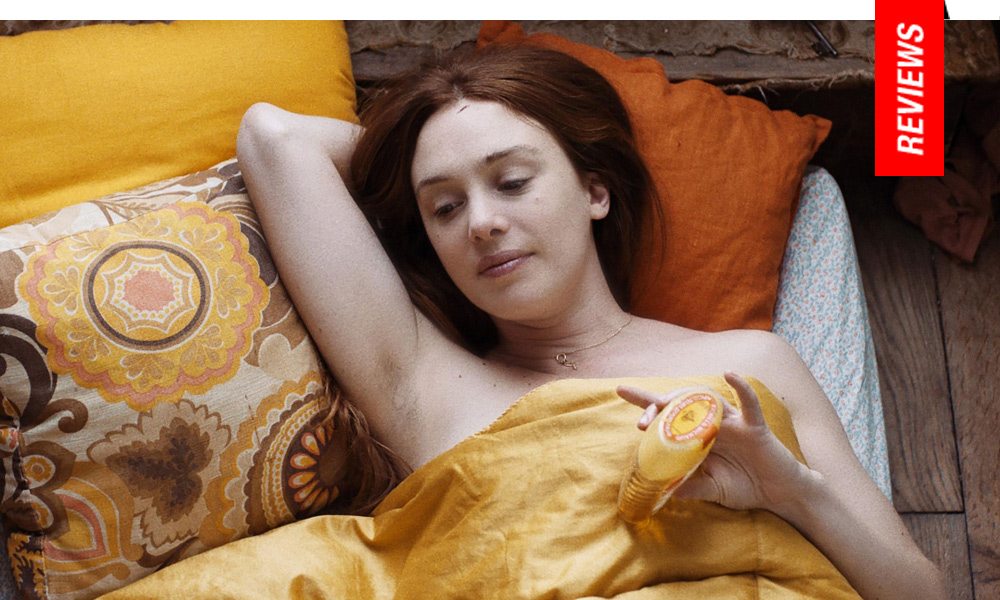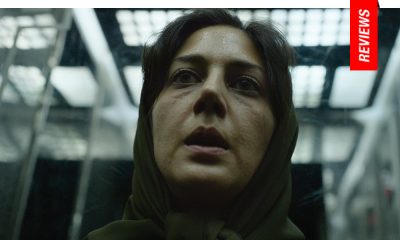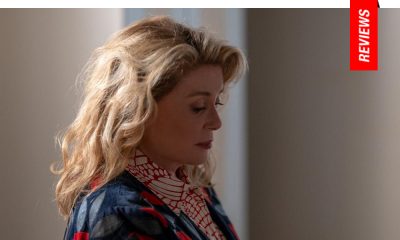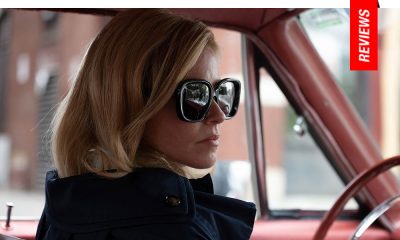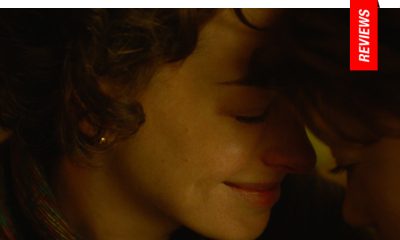Montparnasse Bienvenue (Jeune Femme) | 2017 BFI London Film Festival Review
Wander Woman: Serraille’s Tantalizing Tale of Wayward Independence
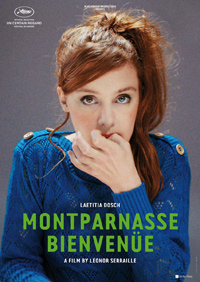 Upon breaking up with her former lover, a youthful woman roams the streets of Paris with a view to securing economic stability in Montparnasse Bienvenue (Jeune Femme), written and directed by first timer Léonor Serraille. It is a delightful debut that won the Camera d’Or at the Cannes Film Festival for its whimsically amusing and felicitous portrayal of the feminine point of view. Serraille’s production might be seen as yet another entry to the recently growing trend of urban chick flicks, but it stands out with its delicate script, mischievous humor and elusive protagonist. With Parisian neighborhoods as an expressive backdrop, the film mounts the transformation of its main character with precise, yet unpredictable turns, at the same time maintaining an aura of irresistible magnetism.
Upon breaking up with her former lover, a youthful woman roams the streets of Paris with a view to securing economic stability in Montparnasse Bienvenue (Jeune Femme), written and directed by first timer Léonor Serraille. It is a delightful debut that won the Camera d’Or at the Cannes Film Festival for its whimsically amusing and felicitous portrayal of the feminine point of view. Serraille’s production might be seen as yet another entry to the recently growing trend of urban chick flicks, but it stands out with its delicate script, mischievous humor and elusive protagonist. With Parisian neighborhoods as an expressive backdrop, the film mounts the transformation of its main character with precise, yet unpredictable turns, at the same time maintaining an aura of irresistible magnetism.
Refused entry to her boyfriend’s flat, thirty-something Paula Simonian (Laetitia Dosch) bangs her head on the front door and is soon picked up by the neighbors. At the local hospital, Paula pleads to a random doctor with little sympathy in return: she is heartbroken, furious, and desperate, holding an incoherent rage against her former lover Joachim (Grégoire Monsaingeon), a wealthy photographer largely absent from the film except as a voice in Paula’s phone and a brief appearance at the film’s finale. This is Paula’s moment, for the doctor suggests her to embrace a renewed form of freedom, though Paula is far too cynical to even consider it. Her response: “that freedom shit again? That’s for egotistical pricks.” This sets Paula’s wayward entry to a life of independence, but her self-absorption is too much to bear, as she is thrown out of her first pit stop upon questioning her pregnant friend’s prowess as a future mother.
Paula’s heterochromatic eyes and wavy orange hair are but two visual clues to her own idiosyncrasy and an extension of a personality that does not quite fit to the confines of a conventional, polite society. Drifting aimlessly across Paris, she stumbles upon Yuki (Léonie Simaga), who mistakes Paula for her primary school friend due to her unique appearance. With the combination of her distinctive charisma, self-determination and resourcefulness, Paula lands a retail assistant job at the lingerie section of a department store as well as temporary lodging as a maid. At her work, she finds solace in Ousmane (Souleymane Seye Ndiaye), the security guard at the store, and the only person willing to give Paula advice in turning her life around.
Dosch is supremely alluring in her embodiment of Paula, capturing both the nervous disposition and dazzling charm of a young woman. Despite her initial reaction, Paula is all in for reclaiming her independence, surviving whatever life throws at her. Across frequent metro trips, wandering from place to place to sleep, eat and drink, Paula confronts a Paris furnished with a hostile demeanor – engulfed by Gil Evans’s melancholic big band jazz piece Las Vegas Tango. But Paula thrives on challenges, and eventually takes charge of her own life, including a reconciliation attempt with her mother, who has seemingly abandoned her.
Serraille’s non-intrusive, observational style instills Paula in nearly every frame and her transformation from an impulsive mode of behavior to one that is slightly more mature is represented in a matter-of-fact manner, which is not to say that the film is devoid of sentimentality. Au contraire; varying close ups and medium shots underscore Paula’s emotional reactions to her environment, fusing a realistic atmosphere with poignant delivery. The overall tone, visual style and color schemes bring to mind the immersive story lines of the Dardenne brothers, equally inundated with enigmatic characters facing real life crises of all sorts. The natural, improvised acting is further reminiscent of the works of Mike Leigh – an avowed inspiration – particularly his nihilistic Naked, which likewise featured an antagonistic protagonist drifting across London in a state comparable to Paula’s unfriendly Paris.
There are many other striking moments. For instance the banal questions pointed at Paula during her job interview demonstrate the artificiality of the retail industry. The camera position – fully frontal, Dosch directly facing the lens of the camera – recalls the pseudo-factual episodes in Agnès Varda’s Sans toit ni loi (or Vagabond, as is more commonly known), another key feminist masterpiece that probes the discrepancies between total freedom and one’s perceived obligations to society. But Serraille is less explicit in making ideological commentary. Whereas Varda’s radical outcast Mona pushed the limits of freedom up to her own demise, Serraille chooses to sketch a portrait of what could be a real person, however wild and pugnacious.
Montparnasse Bienvenue ticks a lot more boxes than an ordinary debut. As a story of a woman’s path to independence, it displays a great deal of urgency in reminding us the absence of female voices in the film industry and serves as a testament to the originality these diverse voices bring to cinema. Moreover, it is skillfully subtle in referencing contemporary social problems – problems that not only relate to young women, but a whole panorama of struggling identities, from the cash-stricken underclass to alienated urban yuppies. It is, in plain words, the work of an assured director to watch out for.
Reviewed on October 12th at the 2017 BFI London Film Festival. 97mins.
★★★★/☆☆☆☆☆
Emre Çağlayan is a film writer, researcher and independent scholar currently living in Canterbury, United Kingdom. He completed a PhD in Film Studies at the University of Kent, with a dissertation examining the history and aesthetics of slow cinema. In 2016, he participated at the Sarajevo Film Festival's Talents Press programme and continues to teach film courses in the UK. Top Films From Contemporary Film Auteurs: Almodóvar (Broken Embraces), Ceylan (Uzak), Dardennes (The Son), Haneke (Caché), Hsiao-Hsien (A Time to Live, a Time to Die), Kar-wai (In the Mood for Love), Kiarostami (Close-up), Tarr (Werckmeister Harmonies), Reygadas (Battle in Heaven), Van Sant (Last Days), von Trier (The Five Obstructions).



